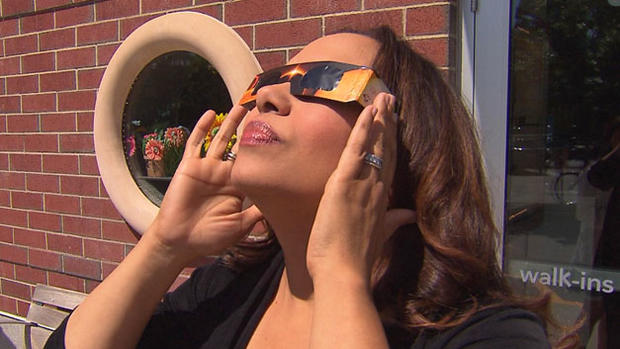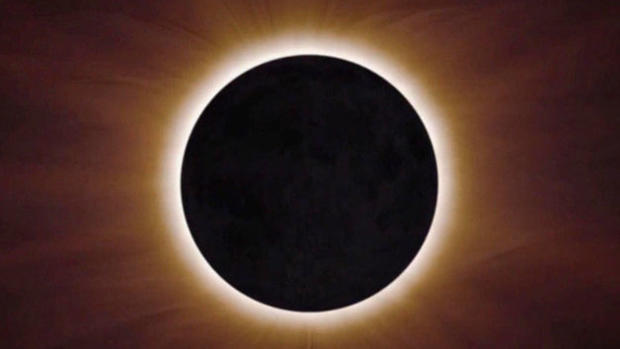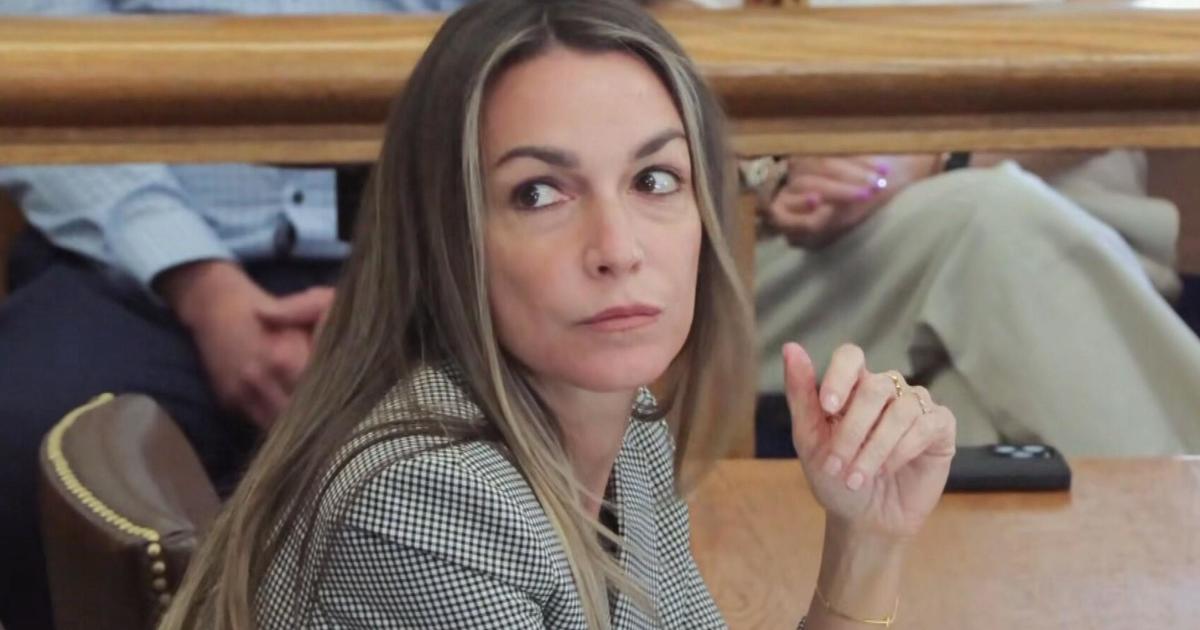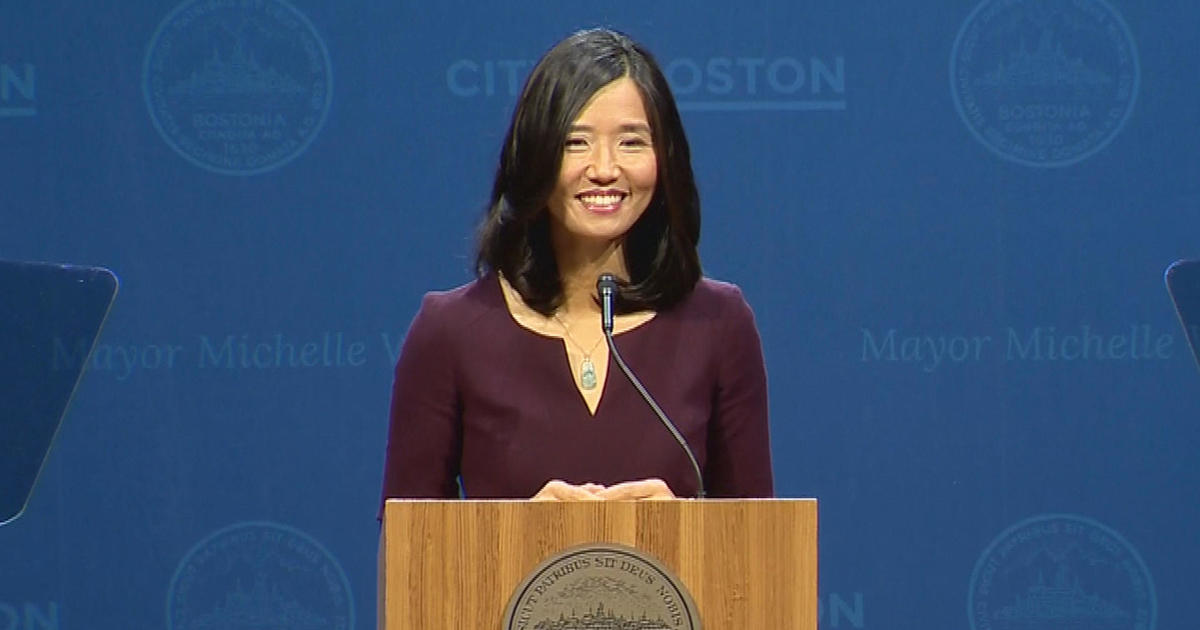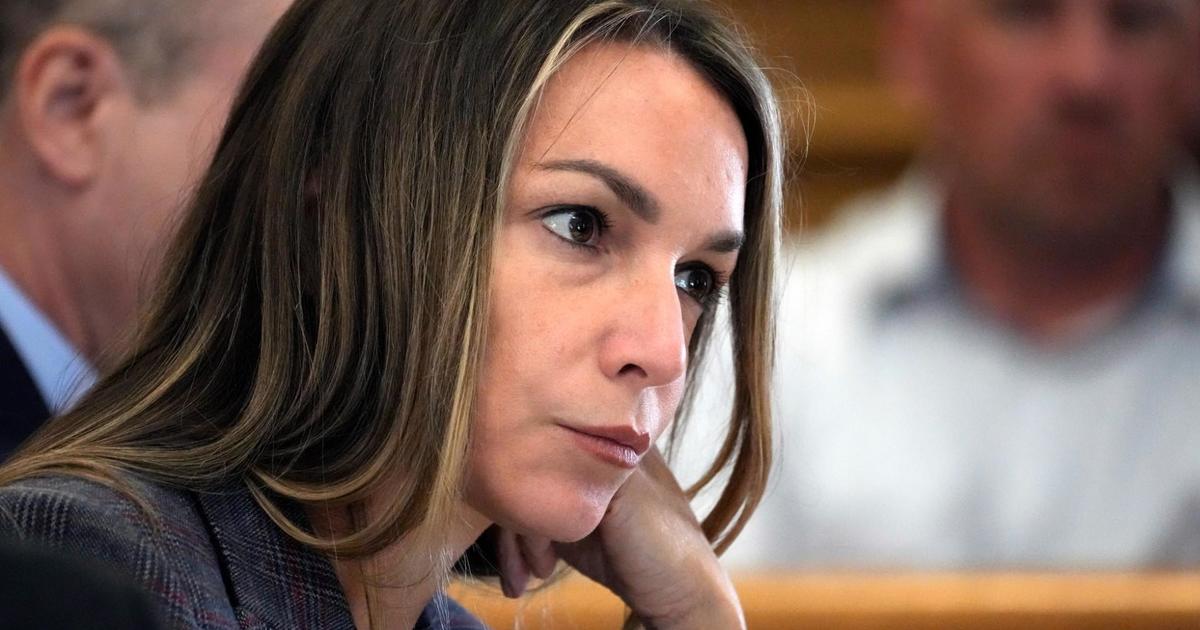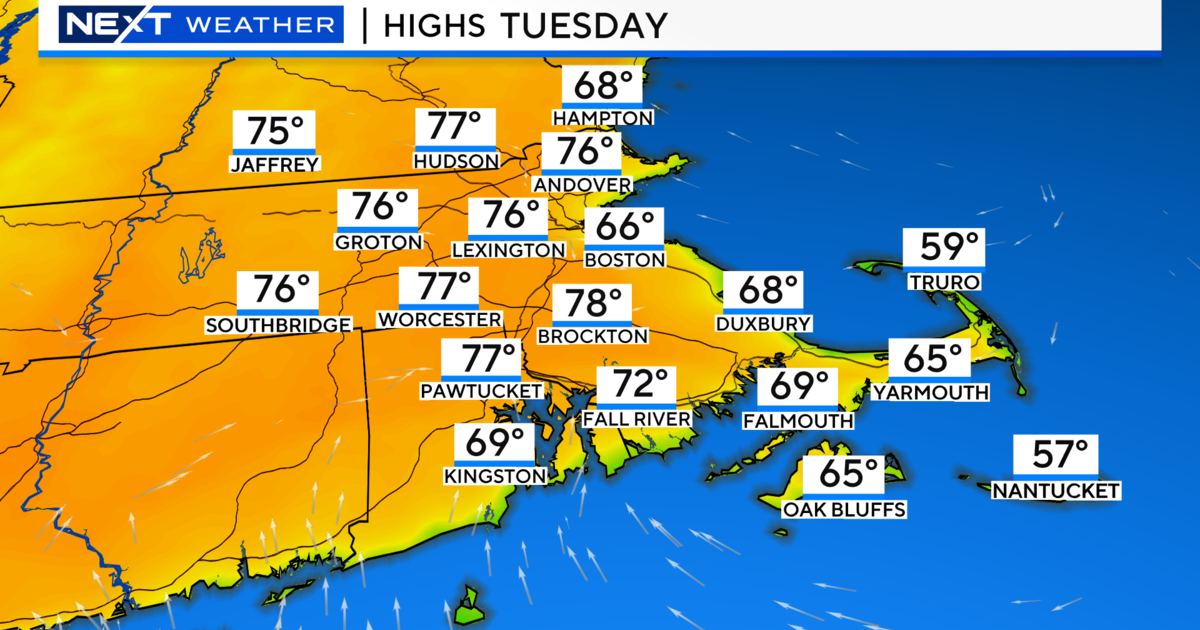How To Protect Your Eyes During The Solar Eclipse
BOSTON (CBS) - On Monday, August 21, all eyes will be on the solar eclipse, a spectacular sight, but even though the sun will be shaded, it will still be dangerously bright. As Dr. Mallika Marshall reports, if you have the right protection, you can safely enjoy the rare show.
"I've never seen an eclipse before but I've heard it's a cool experience," says 22-year-old Simon Archambault who plans to watch Monday's solar eclipse with a bunch of friends in Boston, but he knows he's taking a risk.
"I heard you can go blind," he admits.
RELATED: Where To Watch Eclipse
You could indeed go blind, says Dr. Nicole Sopp, an optometrist at EYESPOT in Chestnut Hill.
"From the high energy solar radiation," explains Dr. Sopp, "It can cause the photoreceptors which are cells within the retina to become sick resulting in tissue damage."
Those changes to the back of the eye can cause black spots, blurriness and distorted vision. The damage can occur in just a matter of seconds, may not appear until days later and is often permanent.
But never fear, all you need is a pair of solar glasses ISO certified with the number 12312-2. The glasses block out nearly all light, and if you see even a sliver of sun, those glasses must be worn.
"When the moon is completely covering the sun during the moments of totality, which only lasts I believe two minutes, it is in theory safe to take off your solar glasses," says Dr. Sopp. "However you want to make sure they're right back on as soon as any sun starts to show," she adds.
Simon says he definitely needs a pair. "I really want to see it, so I hope someplace will have the glasses we need."
Unfortunately, many local stores have sold out of the solar glasses and dark sunglasses are not good enough.
EYESPOT is getting another shipment by the end of the week and the proceeds will pay for free eye exams and eyeglasses for disadvantaged children in Nepal.
Dr. Sopps says some local libraries are handing them out, two pair per family.
